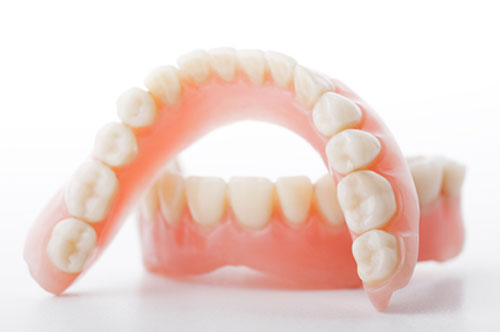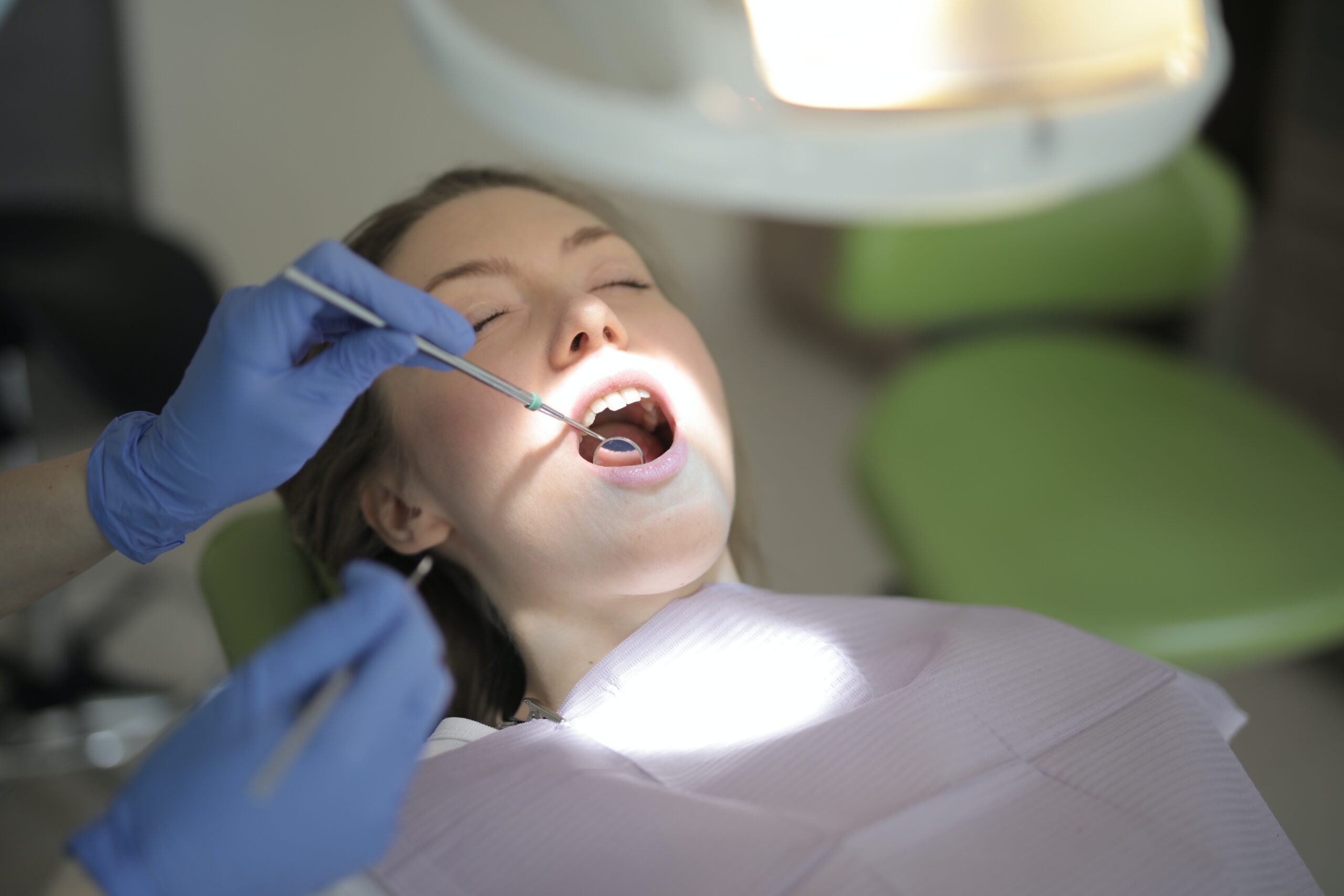As with anything new, there is a learning curve with dentures. The good news, though, is it’s not that steep. Our team will do everything we can to make sure you enjoy a successful transition to your new teeth. This starts with making sure your dentures fit well and providing you with a temporary denture to wear while your mouth heals. You can also try our seven tips for adjusting to dentures.
If you’re interested in dentures or other teeth replacements like dental implants, call Drs. Yung and Jelinek at 540-386-1943.
Speaking With Dentures: Practice Makes Perfect
You may be a bit self-conscious at first about speaking with dentures. Wearing adhesive to help keep your replacement teeth in place can help. Biting and swallowing before speaking also makes it easier for others to understand you, because it puts your dentures in a position that helps you speak clearly. To boost your confidence in your speaking ability, we suggest reading aloud while wearing your dentures until you become more comfortable with them.
Don’t Wear Your Dentures at Night
To give your gums a break, remove your dentures at night. Doing so also helps keep bacteria from accumulating between your dentures and gums, where it can cause gum disease and other problems. You produce less saliva while sleeping, which makes it easier for bacteria to collect.
Keep Your Dentures as Clean as Possible
Keeping your replacement teeth clean is an important part of adjusting to dentures. It not only helps prevent gum disease, it will help you avoid unpleasant “dentures breath.” Here are our cleaning tips:
- Use a soft-bristled toothbrush or a denture brush to brush your dentures daily
- Brush your gums, tongue, and palate too
- Use mild soap and water (mild dish soap works fine) or denture toothpaste, which is non-abrasive
- Brush over a sink full of water or a towel; that way you won’t damage your dentures if they slip out of your hands
- Rinse your mouth with warm salt water before putting your dentures in
- Consider an ultrasonic cleaner, which helps remove stubborn deposits from dentures
Don’t Repair Dentures Yourself
See us ASAP if your dentures break, crack, or chip, or one of the teeth becomes loose. There are home repair kits on the market, but we don’t recommend using them. If you do, you may cause worse damage to your replacement teeth. We can often fix your dentures in just one day, depending on the degree of damage.
Ease Into Eating With Your Dentures
When adjusting to dentures, you’ll need to make some adjustments to your diet – at least at first. We suggest starting with softer foods like eggs, fish, cooked vegetables, and chopped meats. Once you’re comfortable with those, you can resume eating a greater variety of foods. Even after you’ve had practice eating with dentures, certain kinds of foods can cause problems. Avoid these foods, or at least be especially careful when consuming them:
- Foods With Seeds – Choose plain breads, bagels, and rolls instead of those with seeds. The seeds can become painfully wedged between your dentures and gums.
- Popcorn – Kernels can get stuck under dentures and even damage your dentures.
- Sticky or Hard Candy – Treats like caramels and taffies can dislodge your dentures.
Here are some other strategies for meal time:
- Watch hot foods and liquids. It may be difficult to sense temperature extremes at first, and you don’t want to burn your mouth or tongue.
- Cut food into bite-size pieces. You don’t have to give up on foods like apples and pears. Try cutting them into smaller pieces instead of taking big bites.
- Use the sides of your mouth to chew. Using the sides of your mouth to chew works better than biting into foods with your front teeth.
You May Need Periodic Fit Adjustments
When you lose teeth, you also lose tooth roots. With no stimulation from your roots when chewing, the bone in your jaw deteriorates over time. This causes your replacement teeth to loosen. Visit us twice a year for dental exams, where we’ll check the fit of your dentures along with other aspects of your dental health. You can also have your dentures relined every few years, a process that ensures a snug fit.
Consider Dental Implant Dentures
Our final tip is to consider getting dental implant dentures. Many patients find adjusting to dentures easier when they are attached to implants. They’ll stay in place without adhesive and provide better chewing power than conventional dentures. Perhaps most important, they act like artificial tooth roots, keeping your jaw strong and healthy. This keeps your face looking younger, and you won’t need relinings or other adjustments.
For more information on your teeth replacement options, call Drs. Yung and Jelinek at 540-386-1943 to schedule a consultation.
Visit Drs. Yung & Jelinek | Comprehensive Family Dentistry
We can see you as soon as tomorrow!





